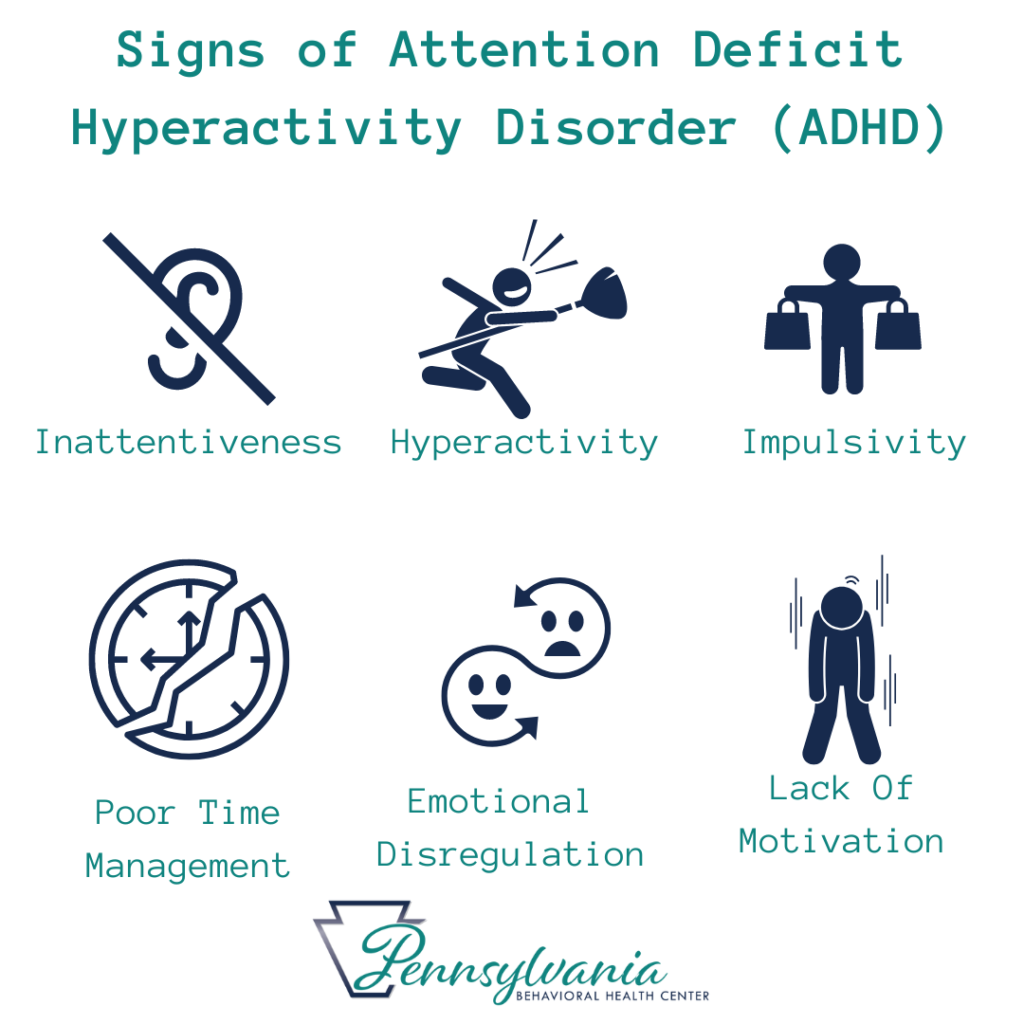Exploring Efficient ADHD Treatment Alternatives for All Ages
The complexities of Attention deficit disorder (ADHD) present special obstacles throughout different age groups, requiring a thorough exploration of efficient therapy choices. A combination of behavior modifications, medicinal treatments, and way of life adjustments has actually revealed promise in attending to the diverse needs of people with ADHD. Nonetheless, the efficacy of these methods can differ dramatically based on individual situations, increasing important questions concerning tailored techniques. As we analyze the range of treatment modalities available, it comes to be vital to take into consideration not just their immediate impacts but likewise their long-lasting effects for individuals and households.
Comprehending ADHD and Its Effect
Attention-Deficit/Hyperactivity Disorder (ADHD) is a neurodevelopmental problem identified by consistent patterns of negligence, hyperactivity, and impulsivity that can dramatically affect various facets of an individual's life. It usually materializes in childhood years, although signs can persist into the adult years. The core symptoms of ADHD can disrupt instructional efficiency, prevent social communications, and make complex work ventures.
People with ADHD frequently have a hard time with preserving concentrate on jobs, arranging tasks, and following up on directions, which can bring about academic underachievement (Depression Treatment). In social contexts, impulsivity may lead to troubles in developing and maintaining connections, as people may disrupt conversations or make hasty choices without taking into consideration repercussions
The variability in sign presentation indicates that ADHD can influence individuals in different ways, demanding an individualized method to management. Comprehensive awareness of ADHD's nature and implications lays the foundation for checking out suitable therapy options tailored to each individual's requirements.
Behavioral Therapies for ADHD
Numerous behavioral therapies have been created to efficiently deal with the obstacles connected with ADHD, concentrating on modifying specific actions and fostering important abilities. Among one of the most identified methods are cognitive-behavioral therapy (CBT), moms and dad training, and social skills training.
CBT helps individuals recognize and alter negative thought patterns and habits, promoting an extra favorable expectation and enhanced self-regulation. This therapy frequently includes practical techniques for handling impulsivity and enhancing organization. Parent training programs equip caretakers by furnishing them with methods to enhance favorable actions and set constant limits, which can be specifically advantageous for youngsters with ADHD.
Social skills training is an additional crucial part, training people with ADHD exactly how to engage properly with peers - Depression Treatment. This technique commonly includes role-playing and responses to enhance communication, collaboration, and conflict resolution abilities
Incorporating these behavioral treatments right into an extensive treatment plan can considerably improve working and high quality of life for individuals with ADHD. Ultimately, the performance of these treatments relies on tailored approaches that think about the unique needs of everyone, therefore fostering durability and versatility in life.
Medication Options Available
For lots of individuals with ADHD, medication can play a significant role in managing signs and improving general functioning. The 2 key categories of medications recommended for ADHD are energizers and non-stimulants.
Energizers, such as methylphenidate and amphetamine-based medications, are the most generally used therapies. These drugs function by raising the levels of neurotransmitters, particularly dopamine and norepinephrine, in the mind, which assists improve focus and decrease impulsivity and hyperactivity. They typically generate fast results, making persistent depressive disorder them a best antidepressant for weight loss favored alternative for many individuals.

It is important for health care providers to conduct an extensive assessment to identify one of the most proper medication based upon individual needs, medical history, and prospective side effects. Routine follow-up and monitoring are likewise important to guarantee the effectiveness of the selected treatment and to make any type of essential changes.
Way Of Living Modifications to Consider
Handling ADHD properly extends past drug, as way of life changes can considerably enhance general wellness and symptom control. Incorporating organized regimens is vital; constant routines aid people with ADHD handle their time properly and decrease sensations of overwhelm.
Routine exercise is one more essential element. Workout not only aids to boost concentration yet also enhances state of mind and decreases stress levels. Activities such as yoga or group sporting activities can be especially useful, promoting both physical conditioning and social communication.
Nourishment also plays an essential function. Depression Treatment. A well balanced diet plan abundant in omega-3 fats, entire grains, and lean proteins can add to improved focus and cognitive feature. Restricting sugar and processed foods is advisable, as these can exacerbate attention deficit disorder and impulsivity
Rest hygiene is essential for managing ADHD signs. Developing a routine sleep routine and creating a relaxing atmosphere can improve rest top quality, causing better focus and emotional regulation.
Different and Holistic Strategies
Different and holistic approaches to ADHD treatment supply a varied array of alternatives that enhance standard techniques. These strategies frequently focus on way of living modifications, nutritional treatments, and healing methods that intend to improve total wellness while addressing ADHD signs and symptoms.

Mindfulness and behavior treatments are likewise obtaining traction as alternative interventions. Practices such as yoga exercise, reflection, and cognitive-behavioral therapy can cultivate self-regulation and boost interest. These approaches support emotional durability, which is specifically helpful for people with ADHD.
Natural supplements, such as ginkgo biloba and ginseng, are occasionally explored; nevertheless, it is crucial to speak with healthcare specialists prior to incorporating these into treatment plans. While alternative and all natural strategies can provide important assistance, they must preferably be made use of together with evidence-based therapies to attain optimal outcomes for managing ADHD across any ages.
Conclusion
In summary, efficient ADHD treatment necessitates a comprehensive technique that consists of behavior modifications, medicine, way of life adjustments, and all natural approaches. Tailored treatments can significantly improve individuals' working and high quality of life, while suitable medicine ensures ideal signs and symptom administration. Adopting structured regimens, engaging in regular physical task, and exercising mindfulness can enhance psychological guideline and focus. This multifaceted method underscores the significance of individualized treatment in resolving the varied needs of people with ADHD throughout every age groups.